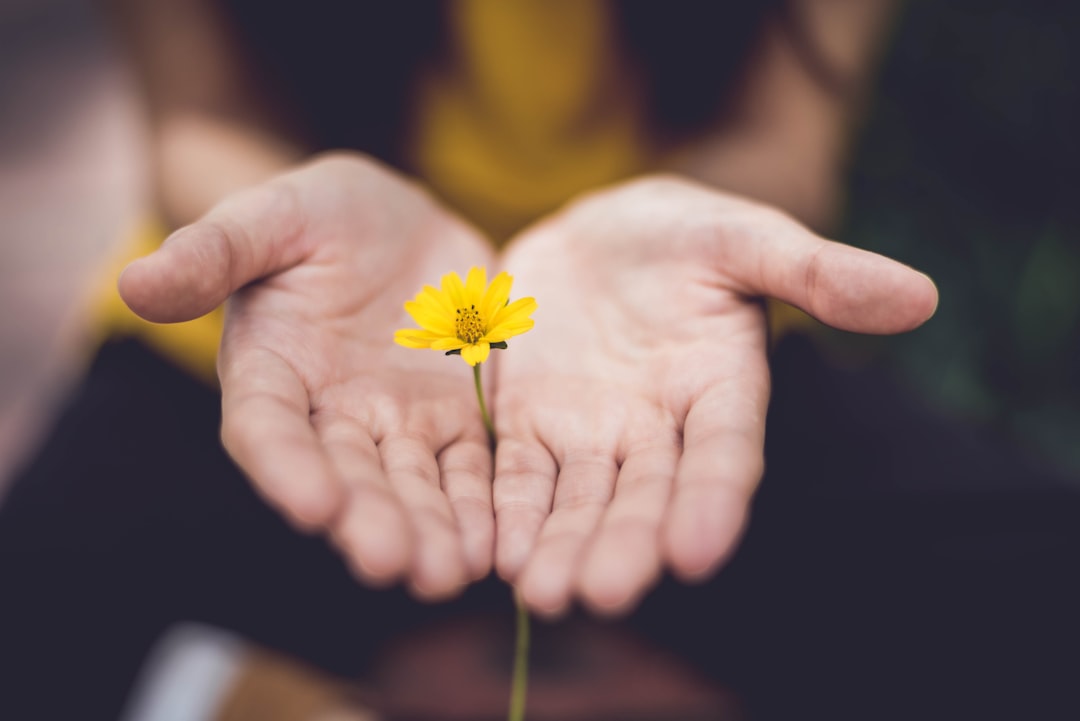Vulnerability is often seen as a weakness in society, something to be avoided and hidden at all costs. We are taught to be strong, to suppress our emotions, and to put on a brave face even when facing significant challenges in our lives. However, in reality, vulnerability is a natural and essential part of being human.
Being vulnerable means exposing our true selves, including our insecurities, fears, and failures. It takes courage to open ourselves up to others and to risk rejection and judgment. Unfortunately, the negative connotations associated with vulnerability have led many people to hide their true selves and avoid it altogether.
But what if we told you that embracing vulnerability could lead to personal growth, deeper connections with others, and increased empathy? What if we told you that by being vulnerable, you could learn from your failures, understand and accept your emotions, and build resilience to overcome life’s challenges? In the following chunks, we’ll explore the benefits of embracing vulnerability and provide tips on how to overcome the fear of vulnerability and take the first step towards personal growth. So, let’s dive in!
Benefits of Embracing Vulnerability
As humans, we often view vulnerability as a weakness that we must hide from the world. However, the truth is that embracing vulnerability can actually lead to personal growth, increased empathy, and deeper connections with others.
When we allow ourselves to be vulnerable with others, we create a space where we can authentically connect with them. This connection allows us to feel seen, heard, and understood, which can be a powerful experience. Additionally, vulnerability allows us to practice empathy by opening ourselves up to understand and relate to the experiences of others.
One of the greatest benefits of embracing vulnerability is the potential for personal growth. When we allow ourselves to be vulnerable, we open ourselves up to the possibility of making mistakes and experiencing failure. However, this failure can be a powerful opportunity for learning and growth. By embracing vulnerability and the possibility of failure, we can take risks and challenge ourselves in new ways.
Of course, embracing vulnerability can also be scary. It can be difficult to open up to others and share our true selves. However, by taking the first step and overcoming our fear of vulnerability, we can begin to build resilience and increase our ability to handle challenging situations.
All in all, embracing vulnerability is a powerful tool for personal and emotional growth. By allowing ourselves to be vulnerable, we can deepen our connections with others, increase our empathy, and build resilience for the challenges that life throws our way.
One of the greatest benefits of embracing vulnerability is the potential for personal growth.
Overcoming Fear: Tips for Taking the First Step
Embracing vulnerability can feel daunting, especially if you have spent most of your life trying to avoid it. However, the benefits of vulnerability are undeniable. So, how do you take that first step and overcome the fear of vulnerability?
1. Start Small: You don’t have to dive headfirst into vulnerability. Start small by sharing something personal with a trusted friend or family member. Gradually increase the level of vulnerability until you feel comfortable sharing more openly.
2. Practice Self-Compassion: It’s easy to be hard on yourself when you feel vulnerable. Remember to practice self-compassion and treat yourself with kindness. Be patient with yourself as you work through your fears.
3. Challenge Negative Thoughts: Our negative thoughts can hold us back from embracing vulnerability. Challenge these thoughts by asking yourself if they are true or if there is evidence to support them. Replace negative thoughts with positive affirmations to build your confidence.
4. Seek Support: Whether it’s through therapy or a support group, seeking professional or peer support can help you work through your fears and build your confidence in being vulnerable.
5. Embrace Imperfection: Vulnerability means accepting imperfection. Recognize that it’s okay to make mistakes and that vulnerability is a process, not a destination.
Remember, vulnerability is a journey that requires courage, patience, and self-compassion. By taking small steps and challenging your fears, you can overcome your fear of vulnerability and reap the benefits of personal growth, deeper connections with others, and increased empathy.
However, the benefits of vulnerability are undeniable.
Understanding emotions: Explaining the Power of Vulnerability
When we think of vulnerability, we often associate it with weakness or shame. However, vulnerability is actually one of the most powerful tools we have for understanding and accepting our emotions. By allowing ourselves to be vulnerable, we open up a world of self-discovery and self-awareness.
When we push away our emotions, we don’t give ourselves the chance to understand them fully. We may feel sadness, anger, or fear, but instead of exploring the root cause of these emotions, we suppress them. We put up walls to keep ourselves safe, but in reality, we’re just protecting ourselves from a deeper understanding of who we are and what we need.
On the other hand, when we allow ourselves to be vulnerable, we give ourselves the space and freedom to feel our emotions fully. We stop resisting and start accepting. We begin to understand why we feel the way we do and what we need to do to take care of ourselves.
Through vulnerability, we learn to be more compassionate and empathetic with ourselves and others. We recognize that everyone has their own struggles and emotions, and we become more patient and understanding towards others. We also learn to communicate more effectively, expressing our feelings and needs in a healthy and constructive way.
Of course, vulnerability isn’t always easy. It requires us to step outside of our comfort zones and face the unknown. But the rewards are well worth it. By embracing vulnerability, we become more connected to ourselves and others, we learn valuable lessons from our failures, and we build resilience that helps us face life’s challenges with courage and grace.
So, if you’re ready to start exploring your emotions and embracing vulnerability, take it one step at a time. Start small, and don’t be too hard on yourself. Remember, vulnerability is a process, and it’s something we get better at with practice. And when you’re ready, reach out to others for support and guidance. With the power of vulnerability on your side, there’s no limit to how far you can go.
It requires us to step outside of our comfort zones and face the unknown.
Learning from Failure
Failure is often seen as something negative and something to be avoided at all costs. However, embracing vulnerability opens up the opportunity for growth and learning from failures. When we are vulnerable, we become more open to feedback and criticism, which can help us understand where we went wrong and how we can improve in the future.
Additionally, vulnerability allows us to take risks and try new things without fear of failure. We no longer feel the need to be perfect or have all the answers, which can liberate us from the fear of failure that often holds us back.
Learning from failure can also help us build resilience. By accepting that failure is a natural part of the learning process, we become better equipped to handle the ups and downs of life. We become more adaptable and resilient, developing the strength to face and overcome challenges.
Failure is not something to be feared or avoided, but rather an opportunity to learn and grow. Embracing vulnerability allows us to do just that, opening up a world of possibilities and helping us become more resilient, adaptable, and open-minded individuals.
By accepting that failure is a natural part of the learning process, we become better equipped to handle the ups and downs of life.
Building Resilience
Embracing vulnerability isn’t always easy, but it can lead to personal growth, increased empathy, and deeper connections with others. One of the lesser-known benefits of vulnerability is its ability to build resilience. When we choose to be vulnerable, we open ourselves up to the possibility of failure, rejection, and disappointment. While these things may seem negative, they can actually help us build the resilience we need to handle life’s challenges with grace and ease.
Resilience is the ability to bounce back from difficult situations and thrive despite adversity. When we’re vulnerable, we learn to tolerate discomfort and uncertainty, which can help us become more resilient in the face of future challenges. By leaning into vulnerability and using it as a tool to build resilience, we can learn to handle stress better, regulate our emotions, and recover more quickly from setbacks.
Of course, building resilience through vulnerability isn’t an easy or quick process. It takes time, patience, and a willingness to step outside of our comfort zones. But the benefits can be life-changing. We learn to be more adaptable, more resilient, and more compassionate towards ourselves and others. We learn to see failure as an opportunity for growth and learning, rather than something to be feared or avoided. And we learn to embrace vulnerability and all the challenges and rewards that come with it.
So if you’re feeling stuck, overwhelmed, or just plain uninspired, try embracing vulnerability as a way to build resilience. Take small, intentional steps towards vulnerability, such as sharing a personal story with a trusted friend or speaking up about something that matters to you. Over time, you may find that vulnerability becomes less scary and more empowering, and that resilience becomes a powerful tool in your arsenal for navigating life’s ups and downs.
We learn to be more adaptable, more resilient, and more compassionate towards ourselves and others.
Conclusion: Embracing Vulnerability for Personal Growth
Congratulations on making it to the end of this blog post on vulnerability! You’ve taken the first step towards embracing your vulnerability by seeking out ways to grow and better understand yourself.
To recap, vulnerability has a negative connotation in society because it requires us to show our weaknesses and potentially be judged by others. However, embracing vulnerability can lead to personal growth, increased empathy, and deeper connections with others.
Overcoming the fear of vulnerability can be challenging, but it is essential to take the first step towards vulnerability. Providing tips for overcoming fear was a crucial part of this blog post, and we hope that you found them helpful when facing vulnerable situations in the future.
Understanding and accepting emotions is a vital aspect of embracing vulnerability. Vulnerability allows for a deeper insight into your emotional state and helps you understand why you feel the way you do.
Learning from failure is another significant benefit of embracing vulnerability. Failure is a natural part of life and an opportunity for growth and self-improvement. Being vulnerable enough to admit mistakes and learn from them is an essential part of this process.
Building resilience is one of the critical aspects of embracing vulnerability. Vulnerability allows us to handle challenging situations, and it also makes us resilient. When we embrace our vulnerability, we increase our ability to handle stress better and bounce back from setbacks quicker.
In conclusion, by embracing vulnerability, we create a life filled with personal growth, deeper connections, and a greater sense of self-awareness. We hope that this post has encouraged you to embrace vulnerability for your personal growth and well-being, and we look forward to seeing the positive changes it will bring into your life.





